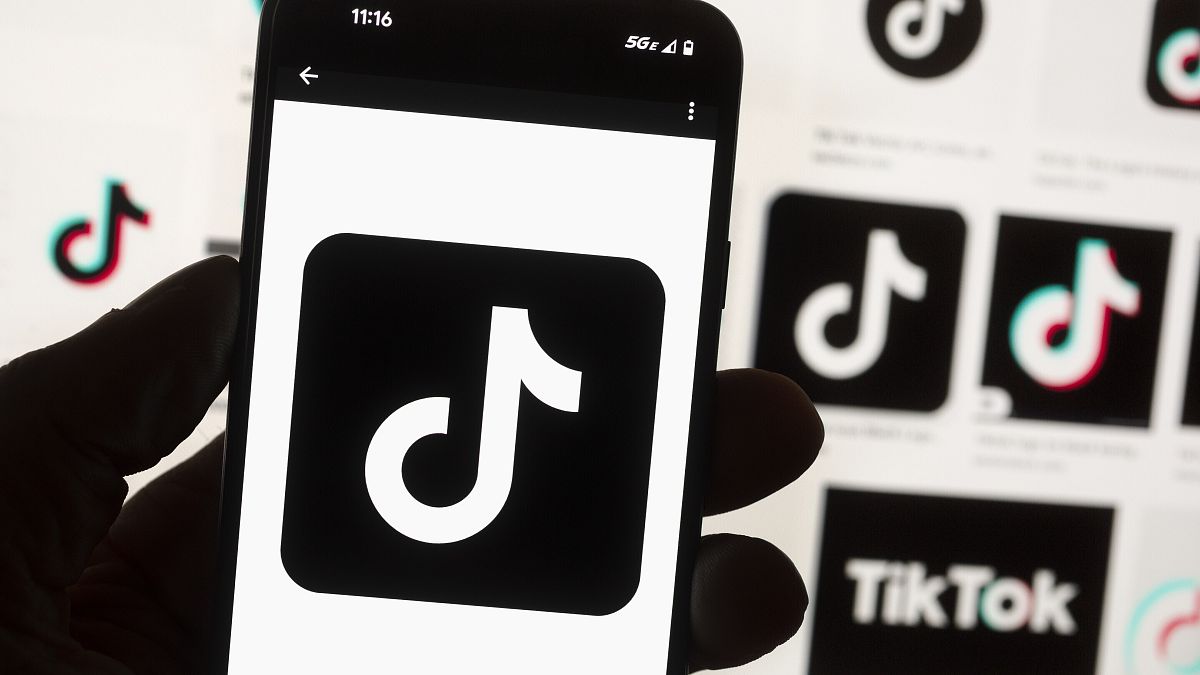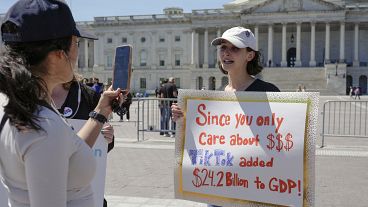The US passed a new law forcing parent company ByteDance to sell TikTok. What does that mean for US-China relations?
TikTok has said it will challenge new US legislation requiring its parent company to sell it under threat of a ban in court.
The law signed this week by US President Joe Biden states that TikTok's Chinese-based parent company ByteDance has 270 days with a possible 90-day extension to divest from the app or face a ban.
"This unconstitutional law is a TikTok ban, and we will challenge it in court. We believe the facts and the law are clearly on our side, and we will ultimately prevail," TikTok said in a statement earlier this week.
Should a legal challenge fail, observers say Chinese authorities are unlikely to allow a sale, a move that could be seen as surrendering to Washington.
Beijing may not want the US action against the popular short-form video platform to set a “bad precedent,” said Alex Capri, a senior lecturer at the National University of Singapore and research fellow at Hinrich Foundation.
“If Beijing capitulates to the US, where does it end?”
'No plan to sell TikTok'
ByteDance said on a Chinese news app it owns that it "doesn't have any plan to sell TikTok".
Hu Xijin, a former editor-in-chief for the Chinese party-run newspaper Global Times and now a political commentator, said that with 170 million American users, TikTok should "have more guts to fight to the very end and refuse to surrender".
The fight over TikTok has increased tensions between the US and China, with both vowing to protect their interests.
US lawmakers have said that ByteDance's ownership of TikTok is a national security threat, with its algorithm manipulating what US users see.
They have said they are trying to prevent "foreign adversary espionage".
The law followed a string of successes by Washington in curbing the influence of Chinese companies through bans, export controls and forced divestitures, drawing protests from Beijing that the US is bent on suppressing China’s rise through economic coercion.
The US previously forced Beijing Kunlun, a Chinese mobile video game company, to sell the gay dating app Grindr after receiving a federal order.
But TikTok, which was created for the overseas market, is a case Beijing does not want to lose.
Financial interests might not prevail
National dignity is at stake and could "take precedence over the financial interests of ByteDance investors," including global investors who own 60 per cent of the company, said Gabriel Wildau, managing director of the consulting and advisory firm Teneo.
A legal challenge from the company is expected to lean on First Amendment concerns and could drag on for years. Beijing is betting on a legal win, analysts say.
What to do if TikTok doesn't prevail is likely still being debated with the Chinese leadership, said Dominic Chiu, an analyst with Eurasia Group.
President Xi Jinping, who will have to sign off on whether to permit or prohibit the sale, probably has not made the final decision, Chiu said.
Luckily for Xi, there is no urgency for Beijing to decide, said Sun Yun, director of the China programme at the Washington-based Stimson Center.
“A lot of things could change," she said.
If lawmakers get their wish and a sale does occur, it’s likely to be a challenging and messy process for TikTok, which would have to disentangle its US operations from everything else.



